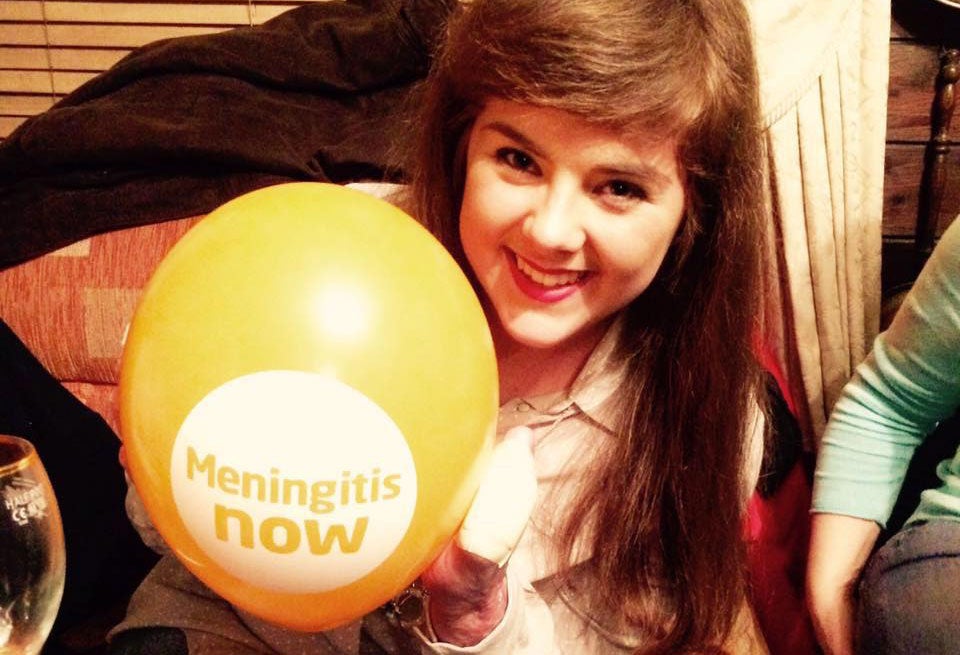Student lost her legs and fingers after ‘common flu’ turned out to meningitis
Teenagers are the second biggest at risk group of contracting meningitis after toddlers and babies

Your support helps us to tell the story
From reproductive rights to climate change to Big Tech, The Independent is on the ground when the story is developing. Whether it's investigating the financials of Elon Musk's pro-Trump PAC or producing our latest documentary, 'The A Word', which shines a light on the American women fighting for reproductive rights, we know how important it is to parse out the facts from the messaging.
At such a critical moment in US history, we need reporters on the ground. Your donation allows us to keep sending journalists to speak to both sides of the story.
The Independent is trusted by Americans across the entire political spectrum. And unlike many other quality news outlets, we choose not to lock Americans out of our reporting and analysis with paywalls. We believe quality journalism should be available to everyone, paid for by those who can afford it.
Your support makes all the difference.A university student who thought she was suffering from the common flu lost both her legs and all the fingers on her left hand after her illness turned out to be a rare form of meningitis.
Teenagers are the second biggest group at risk of contracting meningitis after toddlers and babies, with cases of the disease spiking during the winter months.
But despite the Government’s introduction last August of a new bacterial meningitis vaccine for 17-18-year-olds and first year university students, research from charity Meningitis Now suggests only half of those eligible have received the injection.
Charlotte Hannibal, 19, from Nottinghamshire, shared her story in a bid to raise awareness of bacterial meningitis.
Ms Hannibal contracted meningococcal group W meningitis and septicaemia in February last year. After spending a weekend at home with her family, she returned to university on a Monday to attend her lectures as normal but by the Tuesday had begun to feel cold with a sore throat.
She was taken home by her parents that night but her symptoms quickly deteriorated. She started vomiting in the night and by the time she reached the walk-in centre the next day she felt lethargic was unable to walk.
“After an hour of waiting I was seen by a doctor, who after a five minute discussion sent me straight through to A&E,” Ms Hannibal told Meningitis Now.
“By 6:30pm I had suffered from complete organ failure and had only just developed a slight rash on my eyelids.”
Ms Hannibal was placed in an induced coma at Nottingham City Hospital for 17 days while she fought off the infection. Doctors initially thought she had leukaemia due to her high count of white blood cells and it took two weeks for her to be diagnosed with meningococcal septicaemia.
When she was woken from her coma Ms Hannibal was unable to remember her illness: “I was left with severe memory loss so was unable to remember being ill at all. My hearing was also damaged and, at this stage, I was unable to move anything but my eyes and mouth.
“But it was my first step towards recovery,” she added.
The student spent a total of 27 days in intensive care and 12 weeks on the burns and plastics ward. She had both legs amputated below the knee and lost all the fingers on her left hand due to the illness. She was not able to stay at home again until 15 June.
“Due to severe scarring, my kidneys no longer work at the necessary rate, so I will be on dialysis every night until a kidney transplant can be achieved. While I still have to attend multiple rehabilitation appointments, and spend four days a week at the hospital, I’m very grateful to be a live,” she told the charity.
Ms Hannibal told The Mirror that she continues to push herself each day and can now ride a bike and has continued her love for nail art by decorating her prosthetic legs.
She also made a video of the casting process undertaken by healthcare professionals for a new set of prosthetic legs she is having made, posting it on YouTube.
Ms Hannibal said she plans to do as much as she can to fundraise and raise awareness of the disease.
She urged all young people to have the Men AWCY injection, adding: “If I had had the vaccination, myself and my family would have never had to have gone through such a terrifying ordeal.”
Meningitis Now chief executive Sue Davie said up to a quarter of students carry the bacteria that can cause meningitis compared to one in ten of the general population.
“Over 12 per cent of all cases occur in the 14 to 24 age group, with first year students being at particular risk."
“It’s vital that students are not complacent about the threat of meningitis - we urge them to take up this lifesaving vaccine.”
There are five main groups of meningococcal bacteria that cause Meningitis – A, B, C, W, and Y. An aggressive form of the W strain has been found increasingly among university students, with 119 confirmed cases in 2014.
The Men ACWY vaccine is available for 17 – 18-year-olds and first year university students up to the age of 25.
Join our commenting forum
Join thought-provoking conversations, follow other Independent readers and see their replies
Comments